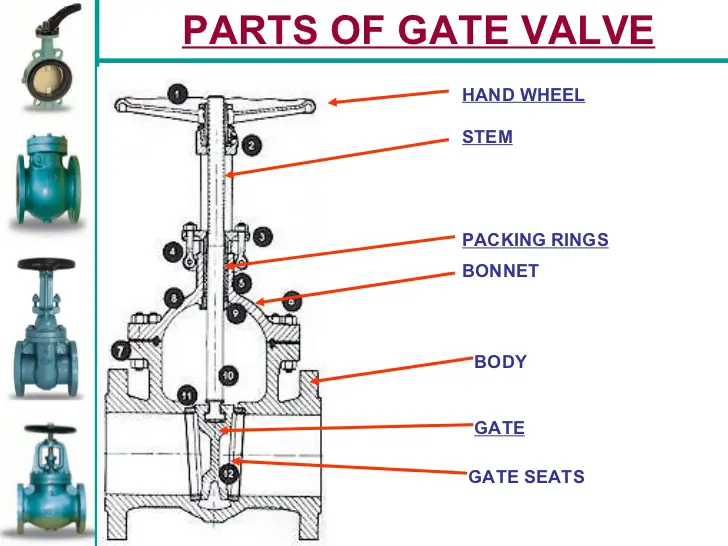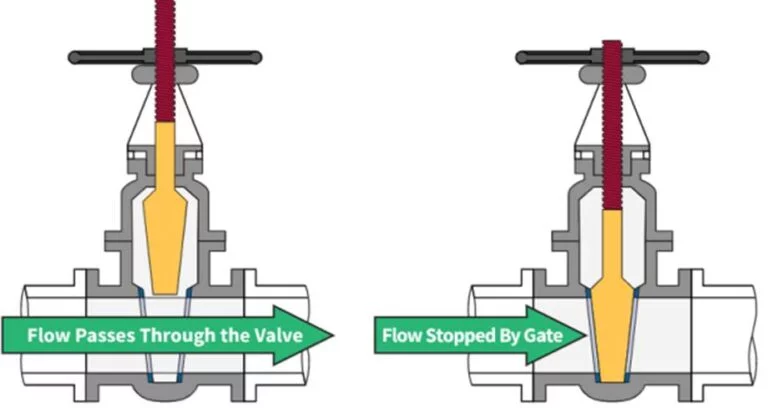What is a Gate Valve?
A gate valve is a type of valve used to regulate and control the flow of liquids or gases within a piping system. It operates using a gate (or wedge) that moves up and down to open or close the valve. When the valve is open, the gate is fully lifted, allowing the fluid or gas to pass through without obstruction. When the valve is closed, the gate is lowered to completely block the flow.

Components of a Gate Valve
A gate valve typically consists of the following main components:
- Body: The outer casing that houses the internal components. The body is usually made from materials such as steel, brass, or plastic.
- Gate: The primary component that controls the flow. The gate moves vertically to open or close the valve.
- Stem: Connects the gate to the handwheel or actuator, allowing the gate to be raised or lowered.
- Handwheel or Actuator: Used to control the movement of the gate up or down.
- Seals and Gaskets: Ensure that when the valve is closed, no fluid or gas leaks out.

Working Principle
The working principle of a gate valve is straightforward:
- When the valve is open: The handwheel or actuator is used to lift the gate, allowing fluid or gas to flow through unobstructed.
- When the valve is closed: The handwheel or actuator lowers the gate, completely blocking the flow.

Advantages of Gate Valves
Gate valves offer several advantages, including:
- Full Flow Capability: When open, the gate valve allows unobstructed flow, minimizing pressure loss.
- High Pressure Tolerance: Gate valves are effective in high-pressure systems.
- Durability and Reliability: Gate valves have a long service life and require minimal maintenance.
- Cost-Effectiveness: With a simple design, gate valves often have lower installation and maintenance costs.
Applications of Gate Valves
Gate valves are widely used across various industries and applications, such as:
- Water Supply Systems: To control and regulate water flow in piping systems.
- Oil and Gas Industry: To manage and control the flow of oil and natural gas.
- Chemical Industry: To handle and transport various chemicals.
- Power Generation: To regulate flow in energy processing and cooling water systems.
Conclusion
Gate valves are essential components in many piping systems due to their full-flow capability, high durability, and cost-effectiveness. With their simple yet effective design, gate valves play a crucial role in managing and regulating the flow of liquids and gases in both industrial and domestic applications. Choosing the right gate valve can enhance the performance and reliability of your piping system.
